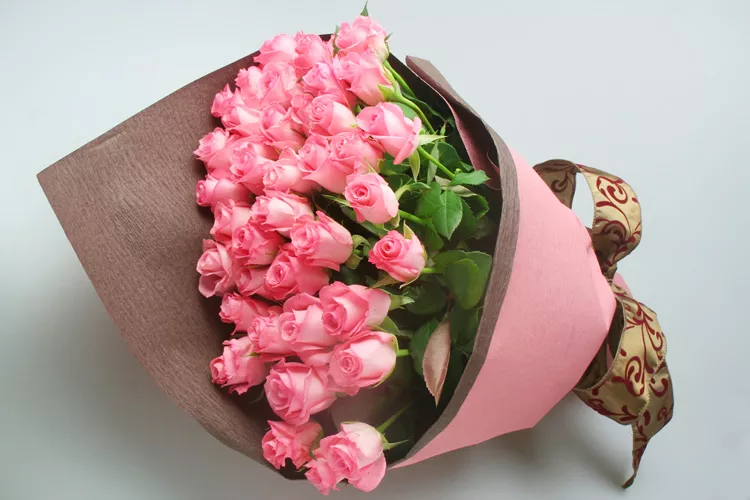When it comes to disposing of flowers, the question of whether they can go in the food waste bin is one that often perplexes many individuals. The answer, however, is not as clear-cut as one might think. In this article, we will delve into the intricacies of flower disposal, exploring the reasons why flowers can or cannot go in the food waste bin, alternative disposal options, practical tips for preparing flowers for disposal, local regulations, and the importance of environmental responsibility in our choices.
Clear and Unambiguous Answer
The answer to whether flowers can go in the food waste bin depends largely on the composition of the waste management system in your area. In some regions, food waste bins are specifically designated for organic materials such as food scraps, vegetable peelings, and coffee grounds. Flowers, while organic, may not be suitable for inclusion in these bins due to various factors such as their composition and potential contaminants.
In most cases, flowers should not be disposed of in the food waste bin. This is because flowers, particularly those that have been cut or arranged in bouquets, may contain substances such as pesticides, preservatives, or dyes, which can contaminate the organic waste stream. Additionally, as flowers decompose, they can produce unpleasant odors and attract pests, further complicating the composting process.
Why Flowers Cannot Go in the Food Waste Bin
Flowers are indeed organic matter, and in theory, they should be suitable for composting along with food waste. However, the reality is more nuanced. Many commercially grown flowers are treated with chemicals such as pesticides to protect them from pests and diseases. These chemicals can persist even after the flowers have been harvested and may pose risks to the environment and human health if they are introduced into the composting process.
Furthermore, flowers that have been arranged in bouquets often come with plastic or metal elements such as ribbons, wire stems, or decorative accents. These non-biodegradable materials not only impede the composting process but also contribute to pollution if they are not properly separated from organic waste.
On the other hand, if you have home-grown flowers that have not been treated with chemicals or embellished with non-biodegradable materials, they may be suitable for composting. However, it is essential to ensure that they are free from any contaminants before adding them to the compost pile.
Alternative Disposal Options for Flowers
Fortunately, there are several alternative disposal options for flowers that do not involve placing them in the food waste bin. One option is to compost the flowers in a home composting system if you have access to one. Home composting allows you to control the composting process and ensure that only organic materials free from contaminants are added to the compost pile.
If you do not have access to a home composting system or if your flowers are not suitable for composting, another option is to dispose of them in the green waste bin or yard waste collection. Many municipalities offer green waste collection services for organic materials such as grass clippings, leaves, and branches, which can also accept flowers for composting.
Additionally, some florists and garden centers may accept flowers for composting or recycling. These establishments may have specialized composting facilities or partnerships with composting operations to ensure that flowers are disposed of responsibly.
Practical Tips for Preparing Flowers for Disposal
Before disposing of flowers, whether in the compost bin or through other means, it is essential to prepare them properly to minimize potential environmental impacts. Here are some practical tips for preparing flowers for disposal:
- Remove any non-biodegradable materials such as ribbons, wire stems, or plastic wrapping from the flowers.
- Shake off any excess soil or debris from the roots or stems of potted plants.
- Cut flowers into smaller pieces to accelerate the composting process and reduce odors.
- If flowers have been treated with pesticides or preservatives, consider rinsing them thoroughly with water to remove any residues before composting.
- Avoid disposing of large quantities of flowers at once to prevent overwhelming the compost pile and ensure proper decomposition.
By following these tips, you can help ensure that your flowers are disposed of responsibly and minimize potential negative impacts on the environment.
Local Regulations Regarding Flower Disposal
When it comes to flower disposal, it is essential to be aware of any local regulations or guidelines that may apply in your area. Some municipalities have specific rules regarding the disposal of organic waste, including flowers, and may provide guidance on how to properly dispose of them.
For example, some cities may prohibit the disposal of flowers in the food waste bin due to concerns about contamination or may require that flowers be composted separately from other organic waste. Others may have restrictions on the types of materials that can be included in green waste collection or may offer alternative disposal options such as drop-off locations or special collection events for flowers and other organic materials.
To ensure compliance with local regulations and promote responsible waste management practices, it is advisable to check with your local waste management authority or visit their website for information on flower disposal guidelines in your area.
Conclusion
In conclusion, the disposal of flowers requires careful consideration to minimize environmental impacts and promote sustainable practices. While flowers are organic matter, they may not always be suitable for composting or inclusion in the food waste bin due to potential contaminants and non-biodegradable materials.
By exploring alternative disposal options such as home composting, green waste collection, or recycling through florists or garden centers, individuals can ensure that their flowers are disposed of responsibly. Additionally, taking practical steps to prepare flowers for disposal, such as removing non-biodegradable materials and cutting flowers into smaller pieces, can help facilitate the composting process and reduce environmental harm.
Ultimately, by being aware of local regulations regarding flower disposal and embracing environmentally responsible practices, we can all play a part in protecting our planet and preserving its natural resources for future generations.


